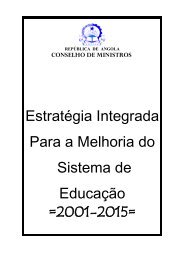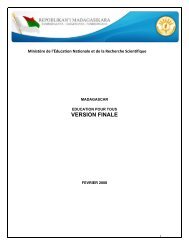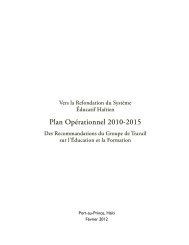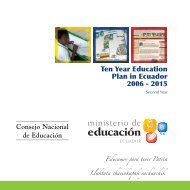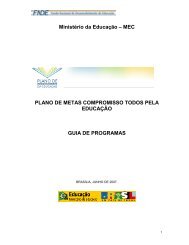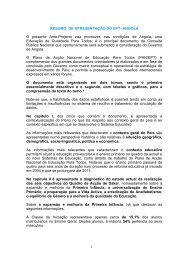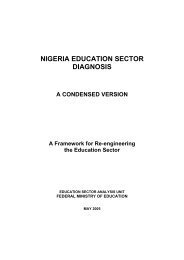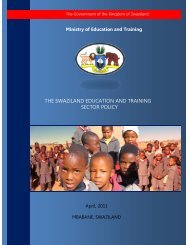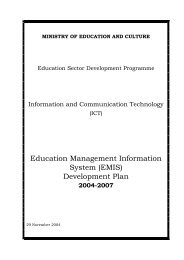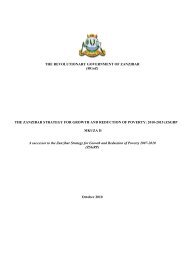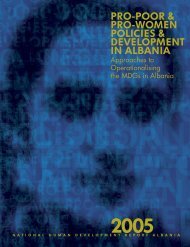Education Sector Strategic Plan 2004-2015 - Planipolis
Education Sector Strategic Plan 2004-2015 - Planipolis
Education Sector Strategic Plan 2004-2015 - Planipolis
Create successful ePaper yourself
Turn your PDF publications into a flip-book with our unique Google optimized e-Paper software.
Final ESSP<br />
cohorts reaching age six by 2007/08 have already been born; only half of the cohorts<br />
have not yet been born.<br />
1.4 The Long-Term Expenditure Framework<br />
The Ministry of Finance, <strong>Plan</strong>ning and Economic Development anticipates that the<br />
budget for education will increase by 76% between 2003/04 and 2013/14. This<br />
projection will be driven by rapid GDP growth. The Ministry expects the rate of<br />
growth to rise from 5.0% in 2003/04 to 6.4% in 2013/14. These growth projections<br />
reflect the assumption that private investment will increase sharply as the financing<br />
of the public debt absorbs a shrinking share of rising savings. Private consumption<br />
is projected to increase by an average rate of 5.3% a year over the decade.<br />
Population growth is assumed to average 3.56% a year. Thus per capita<br />
consumption is predicted to rise by 1.7% a year.<br />
The share of education in total government expenditure is expected to increase from<br />
19.4% to 21.2% as expenditures for security, interest payments, public<br />
administration, economic functions and social services fall.<br />
1.5 <strong>Sector</strong>al context for the <strong>Plan</strong><br />
The second <strong>Education</strong> <strong>Sector</strong> <strong>Strategic</strong> <strong>Plan</strong> is based on government’s White Paper<br />
for <strong>Education</strong>, its long-term commitments to the international community, and on<br />
the medium-term goals and plans and current undertakings of the Ministry of<br />
<strong>Education</strong> and Sports.<br />
1.6 Government White Paper on <strong>Education</strong><br />
The 1992 Government White Paper on <strong>Education</strong> is the basis of official policy on<br />
the purposes and programs of education. While some of the programs have been<br />
revised as a result of intervening events, the White Paper’s articulation of the<br />
purposes of Uganda’s education system continues to be the supreme guidance for<br />
the sector. Its aims are to promote citizenship; moral, ethical, and spiritual values;<br />
promote scientific, technical and cultural knowledge, skills, and attitudes; eradicate<br />
literacy and equip individuals with basic skills and knowledge and with the ability to<br />
“contribute to the building of an integrated, self-sustaining and independent national<br />
economy.”<br />
1.7 International long-term commitments<br />
Uganda has two sets of commitments to the international community that have an<br />
impact on its long-term plans. These are the Millennium Development Goals<br />
(MDGs) and the <strong>Education</strong> for All goals (EFA). The <strong>Plan</strong> is in line with these broad<br />
sets of goals.<br />
2



